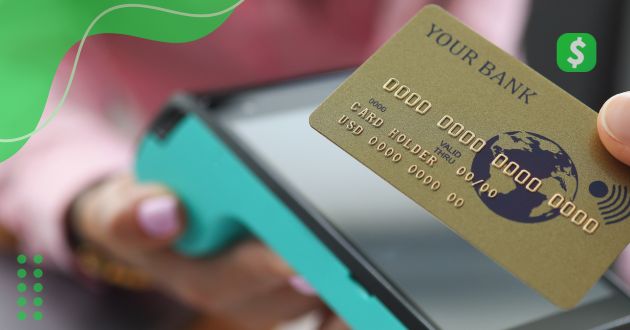Advertisements
How to apply for a secured credit card is a question many individuals with limited or damaged credit histories often ask. A secured credit card is a unique financial tool designed to help those who may not qualify for traditional credit cards. By requiring a cash deposit that acts as collateral, secured credit cards offer a way for users to demonstrate their creditworthiness and gradually build or rebuild their credit profiles.
The benefits of secured credit cards are numerous. They provide a manageable way to establish a credit history, especially for those new to credit or recovering from financial setbacks. By making regular, on-time payments and keeping balances low, users can improve their credit scores over time. This improvement can lead to better financial opportunities, such as qualifying for unsecured credit cards, loans, and better interest rates.
However, the process of applying for a secured credit card can seem daunting, especially if you’re unfamiliar with the requirements and steps involved. This guide aims to demystify the process, offering clear, actionable advice on how to apply successfully. From understanding the basics of secured credit cards to navigating the application process and using the card responsibly, we cover everything you need to know.
Advertisements
Understanding Secured Credit Cards
Before diving into the application process, it’s essential to understand what a secured credit card is. Essentially, a secured credit card requires a security deposit, which serves as collateral and usually determines your credit limit. This security deposit significantly reduces the risk for the card issuer, thus making it easier for individuals with limited or poor credit histories to qualify.
To elaborate further, the security deposit acts as a safeguard for the issuer. For example, if you deposit $500, your credit limit will likely be $500. This means that if you fail to make payments, the issuer can use your deposit to cover the outstanding balance. Consequently, this arrangement provides a level of security for both the issuer and the cardholder.
In addition, secured credit cards function like traditional credit cards in many ways. You can use them for purchases, online transactions, and even to build your credit score. However, it’s important to use them responsibly. Making timely payments and keeping your balance low are crucial actions that will positively impact your credit score over time.
Advertisements
Moreover, most secured credit cards report to all three major credit bureaus (Experian, Equifax, and TransUnion). This reporting is vital because it allows your responsible use of the card to reflect in your credit report, helping to improve your credit score. On the other hand, if you miss payments or max out your card, these negative actions will also be reported and can harm your credit.
Understanding the intricacies of secured credit cards is the first step towards using them effectively. By recognizing their benefits and potential drawbacks, you can make informed decisions and take control of your financial future. Next, we’ll delve into the specific steps of how to apply for a secured credit card to help you get started.
Step-by-Step Guide on How to Apply for a Secured Credit Card
If you’re wondering how to apply for a secured credit card, following a structured approach can make the process much simpler. Here’s a detailed step-by-step guide to assist you:
1. Assess Your Financial Situation
First and foremost, evaluate your current financial status. This step involves checking your credit report, understanding your credit score, and determining how much you can afford to deposit as collateral. By assessing your financial situation, you can identify the right secured credit card that fits your needs and capabilities.
2. Research Different Secured Credit Cards
Not all secured credit cards are created equal. Therefore, researching various options is critical. Look for cards with low fees, reasonable interest rates, and favorable terms. Additionally, consider cards that report to all three major credit bureaus, as this will help in building your credit. Furthermore, some cards may offer rewards or benefits, so choose one that aligns with your financial goals.
3. Gather Necessary Documentation
When you’re ready to apply, ensure you have all the required documents. Typically, you will need:
- Identification (e.g., driver’s license or passport)
- Social Security number
- Proof of income
- Bank account information for the security deposit
Having these documents prepared in advance will streamline the application process and reduce the likelihood of delays.
4. Submit Your Application
Most applications can be completed online. Be prepared to provide details about your financial situation and the amount you wish to deposit. It’s important to double-check your entries to avoid errors that could result in the rejection of your application.
5. Make Your Security Deposit
After your application is approved, you’ll need to make the security deposit. This deposit is usually equal to your desired credit limit. Some issuers allow you to increase your limit by making additional deposits over time. Ensure you have sufficient funds available to cover the deposit without straining your finances.
6. Receive and Activate Your Card
Once your deposit is received, the issuer will send you your secured credit card. Upon receiving it, follow the instructions to activate it. This step is crucial as you cannot use the card until it is activated. Make sure to read any accompanying materials to understand your card’s features and terms.
Tips for Using Your Secured Credit Card
Using your secured credit card responsibly is crucial for building your credit. Here are some tips:
First and foremost, make timely payments. Always pay at least the minimum amount due on or before the due date. Additionally, setting up automatic payments can help ensure you never miss a payment.
Moreover, keep your balance low. Try to use no more than 30% of your credit limit to maintain a good credit utilization ratio. For example, if your credit limit is $500, aim to keep your balance below $150. High balances can hurt your credit score and may suggest to lenders that you’re overextending yourself.
Furthermore, monitor your credit regularly. Regularly checking your credit report allows you to track your progress and ensure there are no errors. In fact, many secured credit card issuers offer free access to your credit score as a cardholder benefit. Consequently, you can stay informed about your credit status and spot any potential issues early.
In addition, avoid applying for multiple credit cards simultaneously. Therefore, it’s best to apply for credit only when necessary.
Next, use your secured credit card for everyday purchases. By using your card for regular expenses like groceries or gas, you can build a consistent payment history. However, be sure to pay off these purchases in full each month to avoid interest charges.
Finally, plan for the transition to an unsecured credit card. Over time, as you demonstrate responsible credit behavior, you may become eligible for an unsecured credit card. Many issuers will allow you to graduate to an unsecured card without an additional application, returning your security deposit.
By following these tips, you can maximize the benefits of your secured credit card and build a strong credit foundation.

New Developments in Secured Credit Cards
If you’re curious about how to apply for a secured credit card and what’s new in the market, there are several exciting developments to consider. Recently, the secured credit card market has seen numerous innovations aimed at enhancing user experience and providing additional value.
Firstly, some issuers have introduced secured cards that come with rewards programs. This is a significant shift because it allows cardholders to earn points, miles, or cash back on their purchases, similar to unsecured credit cards. For example, you might earn 1% cash back on all purchases, turning everyday spending into valuable rewards.
Moreover, there has been a rise in secured credit cards offered by digital banks and fintech companies. These cards often come with advanced features such as mobile banking apps that provide real-time alerts, spending insights, and budgeting tools. Consequently, managing your credit card has never been easier or more intuitive, with everything accessible from your smartphone.
In addition, some secured credit cards now offer higher credit limits over time without requiring an additional deposit. As you demonstrate responsible credit use and make timely payments, your issuer might increase your credit limit, providing more purchasing power and further opportunities to improve your credit utilization ratio.
Furthermore, certain secured credit cards are starting to offer additional perks such as travel insurance, purchase protection, and extended warranty coverage. These benefits, traditionally reserved for unsecured cards, add significant value for secured card
That’s why it’s interesting to know the best Travel Credit Cards in 2024 and choose one of them to increase your benefits!
FAQ: How to Apply for a Secured Credit Card
1. What is a secured credit card?
This deposit typically determines your credit limit and reduces the risk for the card issuer, making it easier for individuals with limited or poor credit histories to qualify.
2. How do I apply for a secured credit card?
To apply for a secured credit card, start by assessing your financial situation and researching different card options. Gather necessary documentation such as identification, proof of income, and bank account information. Fill out the application form online, provide the required security deposit, and wait for approval. Once approved, you’ll receive your card, which you need to activate before using.
3. How much do I need to deposit for a secured credit card?
The required deposit for a secured credit card typically matches your desired credit limit. For example, if you want a $500 credit limit, you’ll need to deposit $500. Some issuers allow you to increase your credit limit by making additional deposits over time.
4. Can I get my security deposit back?
Yes, you can get your security deposit back. If you manage your secured credit card responsibly, your issuer may eventually transition you to an unsecured credit card, at which point your deposit will be refunded. Additionally, if you close your account in good standing, your deposit will be returned.
5. Do secured credit cards help build credit?
Yes, secured credit cards help build credit. Most secured credit card issuers report to the three major credit bureaus (Experian, Equifax, and TransUnion). By making timely payments and keeping your balance low, you can positively impact your credit score over time.
Conclusion
Understanding how to apply for a secured credit card is an essential step for anyone looking to establish or rebuild their credit. Secured credit cards offer a practical and accessible means to improve your credit score by providing a platform to demonstrate responsible financial behavior.
Furthermore, staying informed about the latest developments in secured credit cards can enhance your experience and provide additional benefits. Innovations such as rewards programs, digital management tools, and higher credit limits without additional deposits make secured credit cards more valuable than ever. These advancements offer greater flexibility and incentives for cardholders, making the journey of building or rebuilding credit more rewarding.
Ultimately, by using your secured credit card responsibly and staying updated on new offerings, you can significantly improve your credit score and open the door to better financial opportunities. Whether you’re just starting your credit journey or looking to repair past financial missteps, knowing how to apply for a secured credit card and leveraging it effectively can lead to a healthier financial future. Remember, the key to success lies in consistent, responsible use and making informed choices that align with your financial goals.




